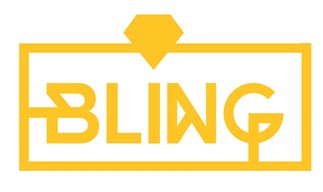Blockchain is a key enabling technology that European governments at all levels will need to use as part of their efforts to deliver innovative services under the Digital Agenda for Europe programme.
Blockchain makes it possible to build systems that share information and record transactions in a verifiable, secure and permanent way. Based on a ‘distributed ledger’, ‘blocks’ of information are ‘chained’ together with cryptography in a system that is able to store, manages,and verify information.
Blockchain-enabled systems should allow governments to deliver a range of new e-solutions and new service designs that redefine transparency, trust and, data-sharing methods that are embedded in the services for citizens, SMEs and governments.
Introducing Bling
BLockchain IN Government (BLING) is a €5M innovation project set up by dere-street for a consortium of 13 European partners to accelerate and de-risk the development and deployment of blockchain-enabled services across the North Sea Region of Europe.
BLING builds upon the substantial investments by the EU, national governments, corporations, SMEs and wider networks to provide one of the first dedicated platforms to bring these tools and approaches into local and regional services.
BLING brings together a unique combination of public authorities, knowledge institutions and SMEs who will work to develop and deploy blockchain-enabled public services focusing on Identity, Direct Democracy, and Customer Services.
BLING isn’t a technology project: it will use an iterative explore/enable/deliver approach to accelerate the adoption and deployment of blockchain by governments in Europe’s North Sea Region. Accelerating the adoption of blockchain will then enable the creation and delivery of the next generation of smart e-services for citizens, governments and SMEs.
Goal: Delivering the next generation of digital services
Modern life relies on the exchange of information: but service providers – at in both the public and private sector – are face significant challenges in how they manage user identity (for both individuals and organisations) and in how they manage information.
The Digital Agenda for Europe and parallel policy changes have supported the widespread digitisation of government services at local, regional and national levels. Despite digitisation, in many cases these new e-services are little more than electronic versions of paper processes.
While governments, citizens and partners have long wanted to develop and deliver transformative services, limitations in our ability to understand who is using services; and how we can manage, integrate and re-use user and service information have combined to significantly restrict our ability to develop the next generation of eGovernment services.
Blockchain: Leveraging new tools to unlock new capabilities
Blockchain – a form of Distributed Ledger Technology (DLT) – provides a technical solution to managing the use and spread of information that can address these issues and can enable the development and deployment of new types of transformative services.
Blockchain is a group of technologies which are designed to store information in an accessible, verifiable, secure and permanent way that can be shared with other systems and services. This will enable new forms of service integration which are based upon the use and re-use of this shared information.
Blockchain should act as an enabler, providing the technical foundations for new types of services that allow for new types of services and interactions with citizens and service users. This shift has the potential to redefine the relationship between governments, citizens and SMEs – at least in terms of transparency, trust and data-sharing.
For the first time Blockchain provides a clear, systemic and standardised approach that can be leveraged to store and use data and information appropriately to deliver new and innovative services.
The European Commission’s eGovernment Action Plan identifies the need for the development of enabling technologies to support service innovation: this is the role Blockchain plays in supporting and enabling the deployment of the next generation of e-services.
There has been significant investment in blockchain development across Europe and the North Sea Region in both the public and private sectors. The European Commission established the European Union Blockchain Observatory and Forum in 2017, investing €320M in blockchain services and development. The UK Government’s Chief Scientific Advisor (UK CSA) described the development of blockchain as “one of those potential explosions of creative potential that catalyses exceptional levels of innovation” – but recognised that research, collaboration, and service pilots were needed to understand how blockchain could affect government services and data handling.
How blockchain works
Blockchain is a form of ‘distributed ledger technology’ (DLT). Blockchain is made up of a chain of cryptographically linked blocks of data stored in a distributed database. Individual pieces of data are combined into blocks of information: each block keeps a history of finished transactions or changes, and all transactions are time-stamped and verified by the participants in the system. Once a block is completed, cryptography ensures that it is unchangeable. As each block is cryptographically ‘chained’ to the previous one, algorithms are able to identify unauthorised changes to data in the chain and the risk of falsification is minimised. Data in the blocks are permanently synchronised between/across storage systems, which can be public or private decentralized storage systems.
From Potential to Delivery
BLING’s goal is to build real life applications which are enabled by blockchain technologies, and understand what works, why, and in what domains. BLING will combine the expertise of knowledge institutions, municipalities, governmental organisations, businesses and citizens to create pilots that deliver blockchain-enabled services. These will highlight how the technology will enable new ways to deliver personalised services.
BLING’s project partners will move beyond proof of concepts to deliver real services in real live governmental settings. This will allow BLING to accelerate and de-risk the development and deployment of blockchain-enabled services across the North Sea Region.
